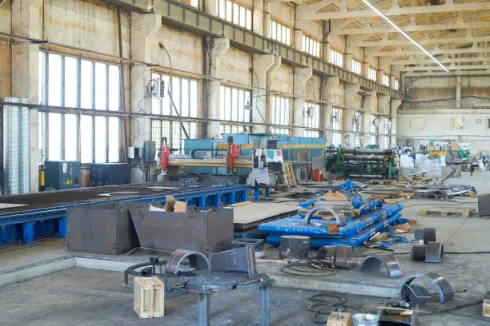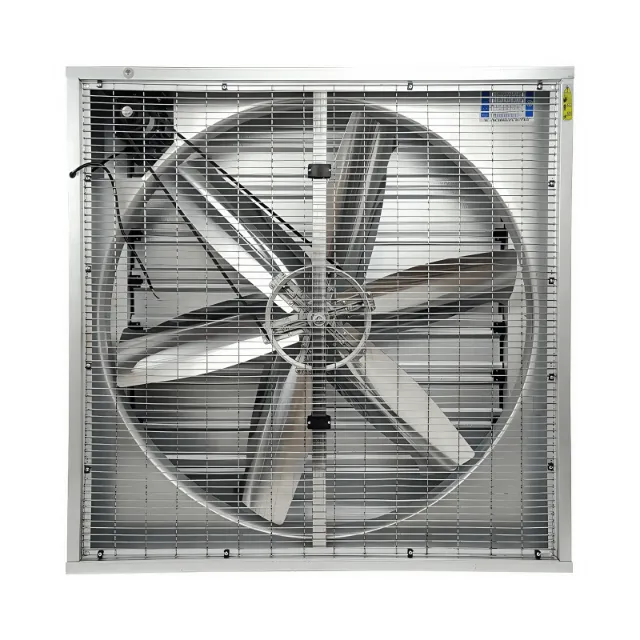Why Metal Finishing Areas Smell(How to Eliminate Fumes)

Introduction: When Metal Finishing Smells Become a Problem
Metal finishing shops are bustling hubs. But they got a catch: the stink. From harsh chemical whiffs to stale, musty odors, these smells ain’t just annoying. They can mess with workers’ health, slow down work, and even break environmental rules. Getting rid of fumes and odors is a big hurdle for factories. Companies like DAIHO Ventilation, who make industrial ventilation and air cleaning gear, got solid fixes for this.
What Causes Odors and Fumes in Metal Finishing?
Chemical Reactions in Metal Treatment
Metal finishing involves stuff like pickling, electroplating, degreasing, and phosphating. Each one sparks chemical reactions that let off gases. For instance, pickling uses acids that give off hydrogen chloride fumes. These smell sharp and stingy. Electroplating can release ammonia or volatile organic compounds (VOCs), which smell strong, sometimes kinda sweet. Sulfide chemicals in some steps might even smell like rotten eggs. These reactions are normal, but they make a mix of odors that stick around if you don’t handle ‘em right.
Poor Ventilation and Air Circulation
Ventilation’s often the weak spot in shops. If air don’t move, fumes pile up in corners or near work areas. Badly set up exhaust systems miss spots where air sits still. Imagine a corner with degreasing tanks, fumes collect there ‘cause the exhaust fan’s too far. Smaller shops might just crack open windows, but that don’t work with chemicals. Still air traps smells, making the shop feel heavy and gross.
High Humidity and Heat
Heat and humidity make things stinkier. Warm air carries more chemical vapors, so smells hit harder. High humidity can make chemicals act up, letting off stronger odors. In a hot, muggy shop, VOCs from solvents evaporate quick, and the air feels thick. It ain’t just about feeling comfy, humid air holds onto fumes longer, sticking to surfaces or even workers’ clothes. Shops in tropical places deal with this all year, while others get it bad in summer.

Health and Safety Implications
Short and Long Term Exposure Risks
Breathing chemical fumes ain’t just unpleasant; it’s risky. Short term, it can cause headaches, dizziness, or itchy eyes and throats. Long term, being around stuff like VOCs or acid fumes might lead to breathing or skin troubles. Some studies say long exposure could mess with nerves, but that’s rare. Rules like OSHA in the U.S. or ISO worldwide set tight limits on shop air quality. Shops that ignore these risk fines or, worse, hurt their workers. Nobody wants a hospital trip from a rough day at work.
Odor Complaints and Productivity Loss
Bad smells don’t just harm health, they drag down morale. Workers in a stinky shop ain’t happy, and that can lead to folks quitting. Odor complaints often point to bigger problems, like bad air or old gear. A worker who’s distracted or uncomfortable don’t work as well. That’s a cost shops can’t brush off. Cleaner air makes the place feel less like a drag and more like somewhere folks wanna stay.
Effective Ways to Eliminate Fumes and Odors
Upgrade Ventilation and Exhaust Systems
Solid ventilation is the key to beating odors. A good system sucks fumes away from workers and pushes ‘em out. Local exhaust, like hoods over pickling tanks, grabs fumes right where they start. Top down air with bottom exhaust keeps air flowing steady, so no dead spots form. Smart systems that tweak themselves based on chemical levels are awesome, they save power and keep air fresh. The trick’s balancing air in and out, so the shop don’t feel like a windstorm but still clears fumes fast.
Use of Air Purifiers and Filters
Air purifiers and filters can change the game. Activated carbon filters soak up VOCs and kill odors. HEPA filters grab tiny particles, but they’re not great for gases. UV systems can break down some chemicals, cutting smells. Industrial gear needs regular care, clogged filters don’t do squat. Most setups need new filters every few months, depending on how much you use ‘em. A shop doing heavy electroplating might swap ‘em more often. It’s a small cost for air that don’t make your eyes sting.
Dehumidifiers and Temperature Control
Humidity and temperature control team up with ventilation. Dehumidifiers pull water from the air, which helps tame fumes. Dry air holds less chemical vapor, so smells ain’t as strong. Cooling systems help too, lower temps slow down chemical evaporation. Solutions from companies like DAIHO Ventilation, built for ventilation and dehumidification, make a real difference. Their gear’s tough enough for busy shops, keeping air steady even when production’s cranking.
Practical Tips for Maintaining a Fresh Work Environment
Routine Maintenance and Inspection
Keeping ventilation systems tip top takes work. Check exhaust fans, ducts, and filters every month to catch issues early. Here’s a quick test: if you still smell fumes near workstations, something’s wrong. Keeping a log of where odors come from helps find trouble spots, like a certain tank or process. Shops should also check air quality often, using sensors to track VOCs or other junk. It ain’t exciting, but it saves bigger headaches later.
Employee Awareness and Training
Workers are your first defense. Teach ‘em to notice early signs of odor problems, like a new smell or extra strong fumes. This catches issues before they spread. Set up a system, like a logbook or weekly chats, so workers can report air concerns. Some shops do “smell walks,” where bosses stroll the floor to spot bad areas. Sounds weird, but it works. Workers who feel involved care more about keeping the shop clean and safe.
Conclusion: Building a Cleaner, Safer Metal Finishing Area
Taming odors in metal finishing boils down to a few steps: tackle chemical sources, boost ventilation, control humidity, and stay on top of upkeep. Clean air ain’t just about feeling good, it helps workers stay healthy, work better, and saves money. Companies like DAIHO Ventilation offer ventilation and dehumidification systems that make this easier, building healthier, more efficient shops. A shop with fresh air is a place folks wanna work, and that’s a win for everybody.
FAQ
Q: Why do some metal finishing processes smell worse than others?
A: Processes like pickling or electroplating use strong stuff like acids or ammonia, which let off heavy fumes. The kind and amount of chemicals, plus heat and humidity, make some smells hit harder.
Q: How often should ventilation systems be checked?
A: Monthly checks are smart. Filters might need swapping every 3-6 months, depending on how busy the shop is. Heavy chemical use means checking more often.
Q: Can air purifiers alone solve odor problems?
A: Nah, not really. Purifiers help, but they’re best with strong ventilation and humidity control. Using just purifiers is like wiping a spill during a flood.
Q: Are there regulations for air quality in metal finishing shops?
A: Yup, rules like OSHA in the U.S. or ISO worldwide set limits on chemical exposure and air quality. Local laws might apply too, so check what’s up in your area.
Q: How does humidity affect shop odors?
A: Muggy air holds more chemical vapors, making smells worse. Dehumidifiers cut moisture, which weakens odors and helps ventilation work better.
